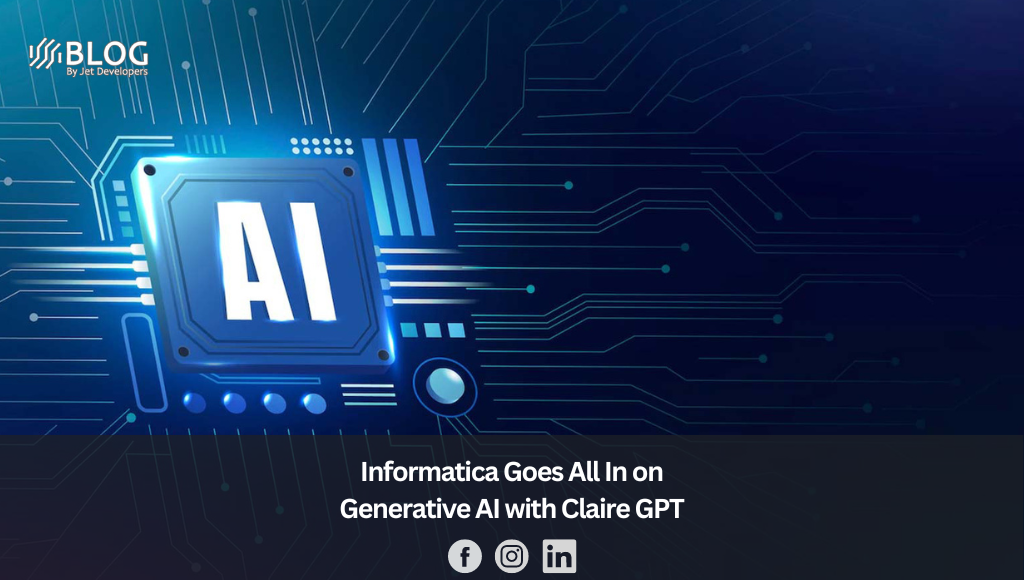In the artificial intelligence (AI) space, there’s a lot of fear-mongering happening these days, particularly with the rise of ChatGPT, Google’s Bard, and Stability AI. These conversational, generative, and other AI models are predicted to fundamentally alter how we live and work.
While it may be true, AI will not take away our jobs or destroy the world, which is a concern shared by 37% of Americans. If we can embrace AI, it will liberate us from repetitive mental work, unlock new professional opportunities, and unleash our creativity. This substantial technological leap will play a significant role in propelling human progress and expanding our economies.
Change your perspective on AI
AI can be compared to the steam engine for the human mind. Just like the steam engine, people were afraid that AI might replace them, but instead, it increased productivity, created more jobs, and improved wages, leading to a larger middle class.
The combination of humans and machines is what makes us stronger. According to research, 90% of employees are currently engaged in repetitive and uninteresting tasks, and AI can help free us from these tasks, making us more efficient.
Every successful technology ever invented has made people stronger. For example, the invention of the car made us move faster, while the cell phone enabled us to communicate with people far away at the speed of light. Additionally, 93% of Americans rely on Google’s auto-correct feature, which has greatly improved non-native English speakers’ language skills.
AI advancements will open up a whole new world for humanity. As Google CEO Sundar Pichai said at the 2018 World Economic Forum, “AI is probably the most important thing humanity has ever worked on. I think of it as something more profound than electricity or fire.” It’s time to embrace AI and let it help us achieve what was once thought to be impossible.
AI and the future of work
In the past, middlemen played a vital role in the workplace. Think of a company that answered the phone and arranged for a taxi. But with Uber and Lyft, the middle person is no longer needed. Similarly, aspiring actors and singers used to have to attend numerous auditions to make it big. Today, platforms like YouTube and TikTok have given everyone the opportunity to become famous without going through the traditional channels. The rise of NFTs may also disrupt the art world, making galleries less relevant in the future.
All of these examples show that technology is empowering people to reach new heights professionally. Dell Technologies predicts that 85% of the jobs in 2030 have not been invented yet, and businesses and workers must shift to a skills-based approach to remain competitive. This means learning how to use technologies like AI, which can drive efficiency, productivity, and profitability.
We’re already seeing the benefits of AI. Although GPT-4 and ChatGPT are still in their early stages, they have proven useful for code developers and have brought AI to non-technical individuals. The potential is enormous. Imagine using a chatbot to respond to all your work emails or to summarize a long report with key points. AI can also eliminate the need to train people to do certain tasks. Instead, we can train them on how to use AI tools to create presentations, conduct analyses, and write reports.
Stability AI is disrupting the motion picture industry by synthesizing backgrounds, faces, costumes, and other assets, making it possible to produce movies without having to go on location. AI is also going to democratize professions that were previously hard to reach, completely change the education system, and revolutionize the way we work. With AI, the professional skills of the future will be about training computers to arrive at the correct answer or outcome, rather than programming them. Soon, our children may no longer need to learn how to spell, compose an essay, or drive a car, but rather how to harness the power of AI to solve problems and create new possibilities.
The possibilities of AI
As humans, we have always craved progress. We are where we are today because we have been open-minded and have an innate learning-first attitude that has enabled us to learn and adapt to new situations and ways of being. AI realizes a level of efficiency and proficiency that is completely unmatched. We must be open-minded to the endless possibilities it may present in the coming years. Yes, it will change how we live and work, but fear not, it will be in the most positive and profound ways.






